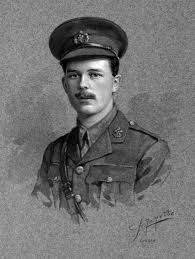 |
| Leslie Beauchamp |
The Katherine Mansfield Reading Project
Project note-stay tuned as I will soon be able to offer as a prize a brand new biography Katherine Mansfield: The Story Teller by Kathleen Jones. A great deal of new material on Mansfield has come to light since the last biography of her was published and I expect this book will be must reading for anyone interested in Mansfield and her era.
"The Fly" by Katherine Mansfield (1888 to 1923-New Zealand) was first published in 1922 and then republished by her husband, John Middleton Murry in a collection of her works he edited, The Dove's Nest and Other Stories, in 1923. "The Fly" is among Mansfield's most famous stories. This story, centering on two elderly men shows Mansfield can write in a sympathetic and very understanding way about characters out side her normal range. In many of her stories the lead characters are women in their late teens or twenties. In several of the stories older men are treated almost as ogres.
The lead character in "The Fly" is Mr. Woodifield, an elderly man who lives with his daughters and his wife. He has suffered it seems a stroke and is allowed out of the house on his own only once a week. He lost his son in WWI (1914 to 1918). Mr. Woodifield for many years worked for a man five years older than he is who still enjoys good health. Mr. Woodifield likes to go to his old office and visit with his boss on his day out. They share an additional bond in that the boss (that is what he is called in the story) also lost a son in WWI. (I think it is worth knowing here that Mansfield's only brother was killed in a training exercise in WWI.) The boss tries to avoid thinking about what happened to his son where Mr. Woodifield feels a need to talk of his son with someone who has a similar experience.
Mansfield does a brilliant job in depicting different ways people cope with aging and with the death of a child in war. The standard cliche is no parent wants to outlive his or her child and we see the truth of that in this story.
The thoughts of the boss are very poignantly and beautifully manifested in the prose of Mansfield:
Other men perhaps might recover, might live their loss down, but not he. How was it possible ? His boy was an only son. Ever since his birth the boss had worked at building up this business for him ; it had no other meaning if it was not for the boy. Life itself had come to have no other meaning. How on earth could he have slaved, denied himself, kept going all those years without the promise for ever before him of the boy's stepping into his shoes and carrying on where he left off ?
After Mr. Woodifield (I wonder if this is meant to evoke the fields in which so many young men lost their lives during the war) leaves the boss struggles not to weep and then notices a fly has landed in his inkwell. I am sure what happens next has been subject to countless symbolic interpretations. Most readers see the actions of the boss toward the fly as somehow representing the attitude of the powerful toward the powerless in the politics of the world. The boss is seen as a brutal character. To me this is wrong. I see the boss as somehow displacing his anger in that he does not know who should be blamed for the death of his son. The depth of this story is not limited by the artistry of Mansfield but by our ability to respond to her work.
The story can be read online here
Mel u





No comments:
Post a Comment